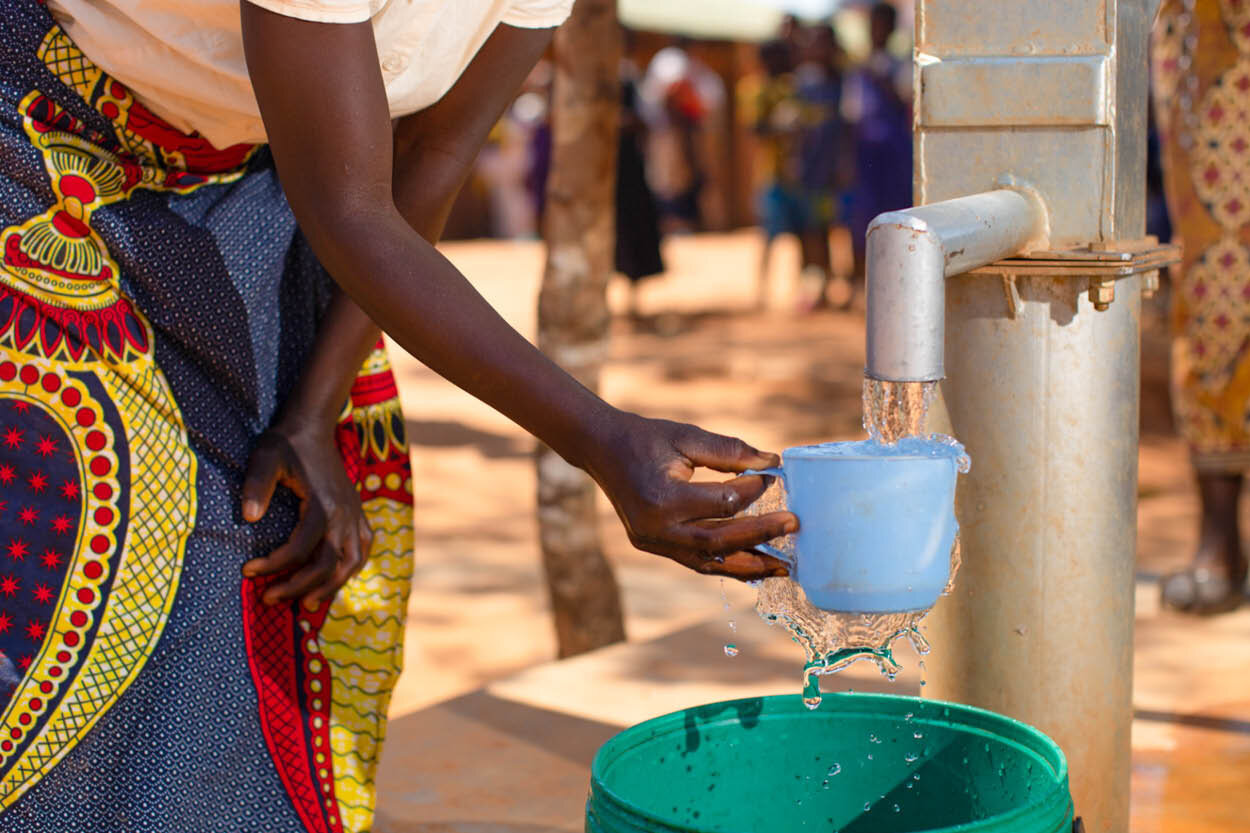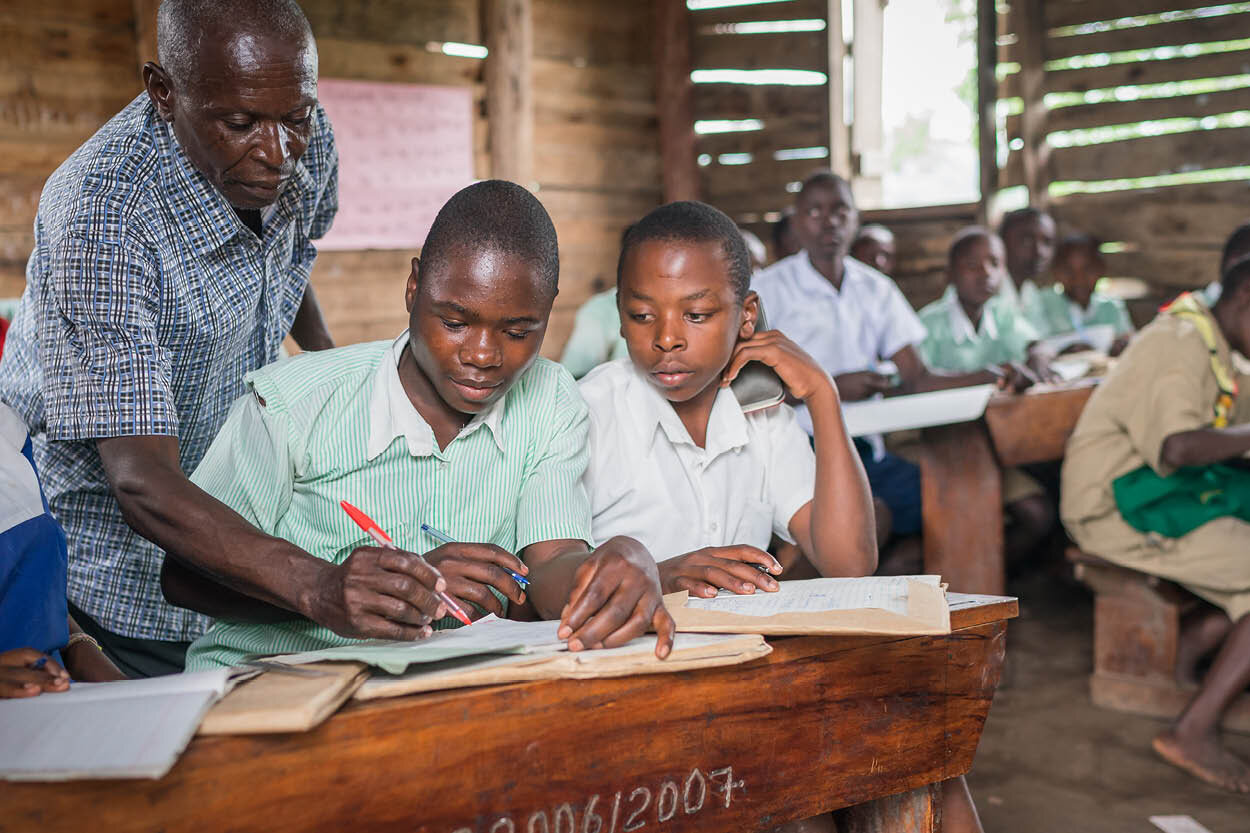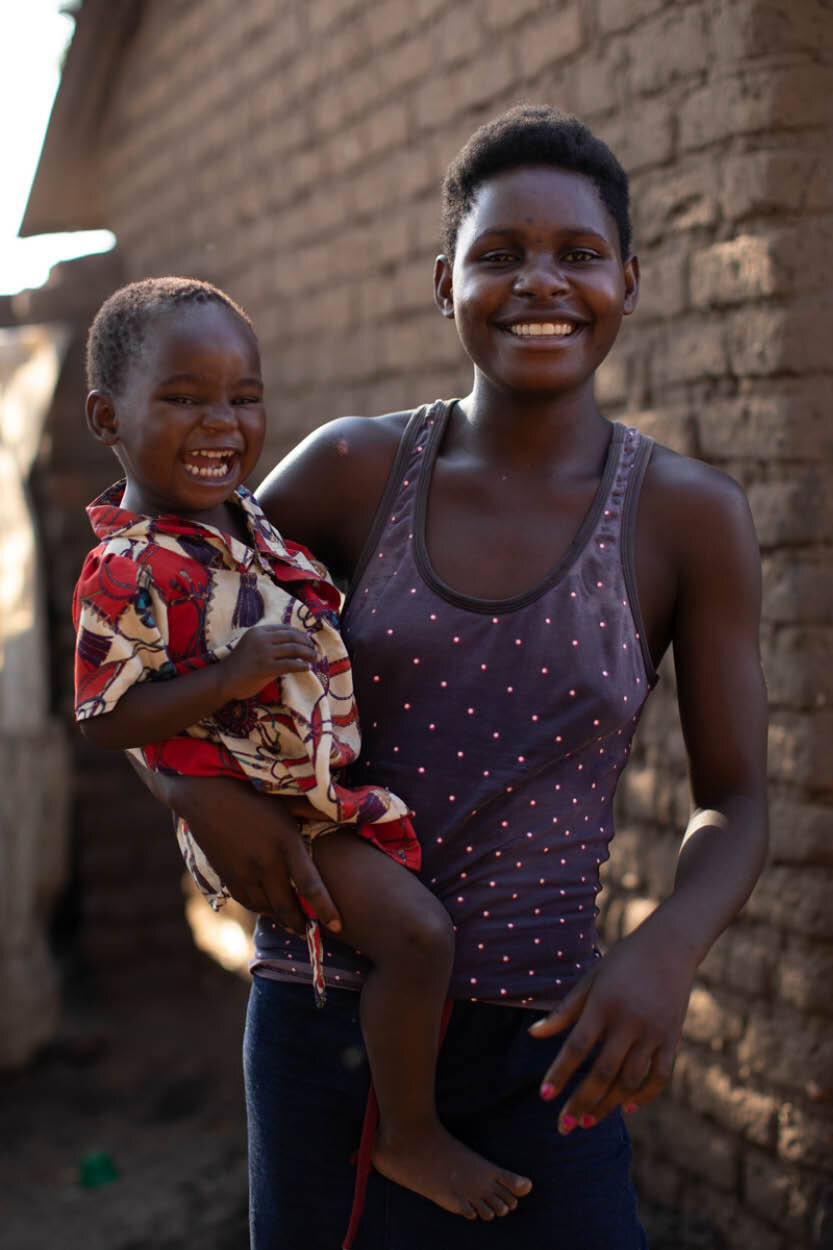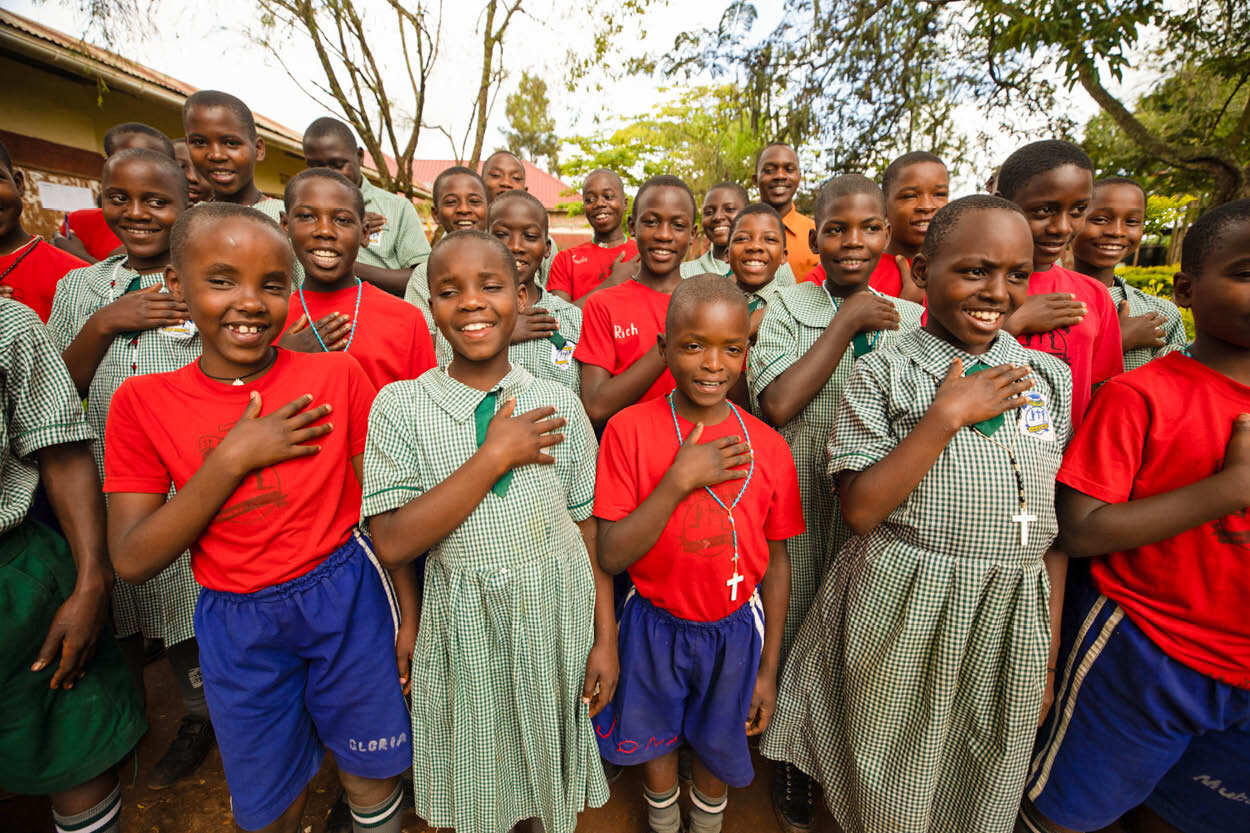“And They’ll Know We Are Christians…”
In the beginning… not THAT beginning. It might surprise you to learn that, at its inception, Blood:Water’s founders and board members wrestled with the question of whether or not to be affiliated as a Christian organization. Even as the name, “Blood:Water,” finds its roots in the story of a man whose blood and water mingled when his side was pierced, in a grand display of human sacrifice for the flourishing of others, it was a difficult cycle of conversations.
At the time of Blood:Water’s founding, the work we were doing seemed to be at odds with the position the American church was taking in relation to HIV/AIDS. With some exceptions, the church was known for its hard stance against the majority of people in America, namely the LGBTQ+ community where HIV/AIDS was most prevalent. The hard line that had been drawn separating the compassionate engagement of Jesus’ followers from those whose sexual orientation did not seem to fit the Biblical narrative, was well defined in America. So, when HIV/AIDS began to surface and the pandemic began to grow in places like East Africa, any engagement of the American church appeared to be a bridge too far.
The Christian church in America was more comfortable being an obstacle to compassionate care in Africa, than a true embodiment of Jesus’s love and investment in the poor and the suffering. This was more and more obvious to me and our small team when the loudest voices speaking about HIV/AIDS in the Christian church were saying that AIDS in Africa was the result of sin, indiscretion, and sexual deviance, and God was pouring his wrath upon “those” people. The role of the Christian church was to step aside and allow God to act out his vengeance upon Africa.
As you might imagine, the argument was oddly convenient for people NOT in Africa, and also people who were not wrestling with a deadly health crisis. For an organization of people whose values did not align with this broad ideology, you can understand that calling ourselves a Christian organization posed some challenges.
There were other reasons to tread cautiously in identifying Blood:Water as a Christian organization. The posture of the Christian church toward East Africa was inequitable at best. The assumption that God, who’s actual footsteps were on the African continent, had not reached into the hearts and established the roots of the upside down kingdom, was a catalyst for all kinds of posturing that elevated missionaries and colonizers to see the people of Africa as people in need of saving. This was a mindset perpetuated by development and relief organizations to this day.
I remember the first few times I had the privilege of hearing stories of God’s provision from people who stood on the edge of the abyss, not knowing whether or not they would have enough to survive the next day. I remember listening to them describe God as a provider. The intimacy of their faith in God who showed up in their need and performed miracles in their midst, well… it made any sense that a development organization must also preach Jesus to the “unreached,” a mostly arrogant concept, coming from the American church.
The work of evangelism in places where God was so intimately connected to the people often shows the disconnect of Christians who step into communities with their own agenda, missing the opportunity to learn from local people about God. While we understood how vital the role of hope and faith played in the work we were doing, we trusted God to show up rather than be wrangled into the spaces we found ourselves. In an era when Christian development work was synonymous with evangelism, we were, again, out of alignment with this ideology.
It is a wonder how we ever untangled ourselves from the philosophical and theological yarn spinning of this weighty decision. In some ways, we are still tangled. After all, what is true of humanity, that there is nothing so un-worthwhile as the unexamined life, must also apply to the unexamined development organization. We continue to wrestle with what we trust and hope and in whom we find our being, as we seek out the wild and brilliant winds of a living God.
We did eventually decide to identify Blood:Water as a Christian organization. It may have been an act of resistance or rather, defiance to a religious institution that had lost its compass and its soul. Because even as we did not want to be lumped together with the dissenting voices that seemed to characterize the church in 2003, we could not stare down the mountain of stories that had brought us together. We could not look at the work ahead of us and assume that our human tenacity would suffice given a vision that spanned decades. We knew enough about the human condition to conclude that it would not be enough to sustain what Frederick Buechner described as the long obedience in the same direction.
Some days it is the greatest frustration that the Christian church has wandered so far into the gingerbread home of politics and culture wars–the Hansel and Gretel so easily enamored with the sugary sweetness of comfort, and safety to the end that it aligns with the politics that will grant it enough power to stay comfortable. The constructs of the human condition have given the church an escape from the work of loving our neighbors and sacrificing our very lives for the benefit of our brothers and sisters. The church has redefined persecution so that it can keep its narcissistic habits.
It would be difficult to know exactly what it means to be a Christian apart from the description of a person separate from the spirit of God. The human condition, or as Paul might have described it as being motivated by the “flesh,” is most notable when we attempt to control or destroy what we do not understand, and subsequently fear. Yikes.
There are a LOT of layers to that statement. It is the compass that allows us to see which direction we are facing when we attempt to do things that influence the people around us. And it is, in part, what gives Blood:Water the distinction of being a Christian organization.
Blood:Water chose a path of pursuing human flourishing for our neighbors in East Africa, that was not trendy, fast, visually explosive, or noisy. Born out of what we saw in Jesus’ actions and lessons, we trusted that if we took the time to know the people we wanted to serve, then we would also form relationships that were equitable and dignifying. Because every time we acted out of truly knowing those we sought to serve, we were operating out of a spirit of love, and not out of our human condition to control or destroy.
Blood:Water’s affiliation as a Christian organization is not wrapped up in the work of choosing a side. It is not a misplaced guardrail that requires beneficiaries to believe what we believe or practice what we practice. It is a statement that holds our work to a standard of excellence as we understand the sacred and inherent value of all human beings.
The integrity of Blood:Water’s engagement with the world can only stand if the affirmation of human dignity, responsibility to our neighbors, equitable relationships, and posture of learning continue to be fostered. That cannot happen if we choose to operate out of the human condition.
We rely on God to show up. God does show up.
There is nothing like it in the world, when a spirit of service and love pushes down the desire to control what we are afraid of. It looks like water springing from the earth, and vulnerable children being cared for. It looks like a compassionate investment into the lives of people who are suffering with compromised immune systems. It looks like the eradication of disease and stigma and the valuing of each and every human being regardless of illness, economy, geography, ethnicity, religion…on earth, as it is in heaven.
More Stories:
Categories







